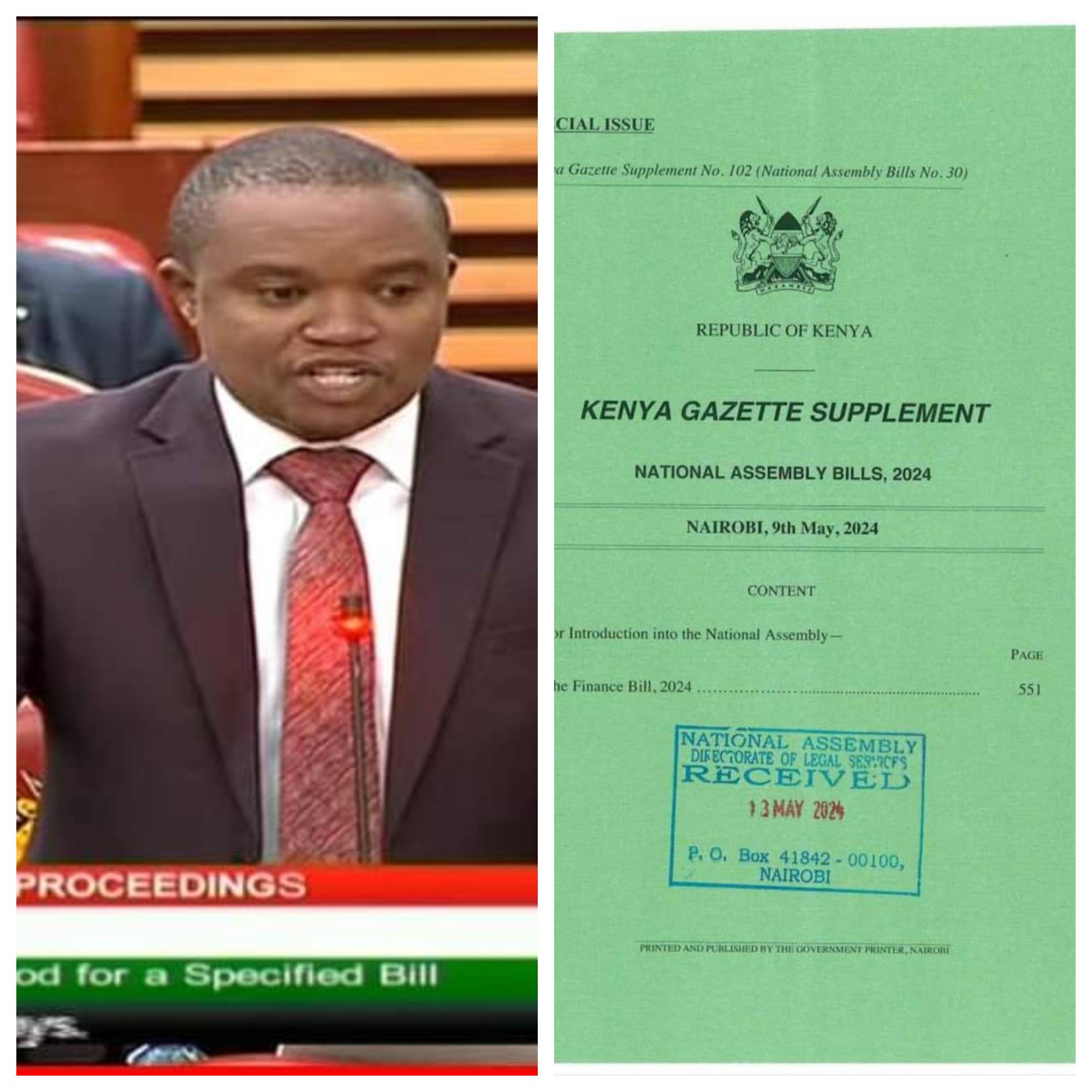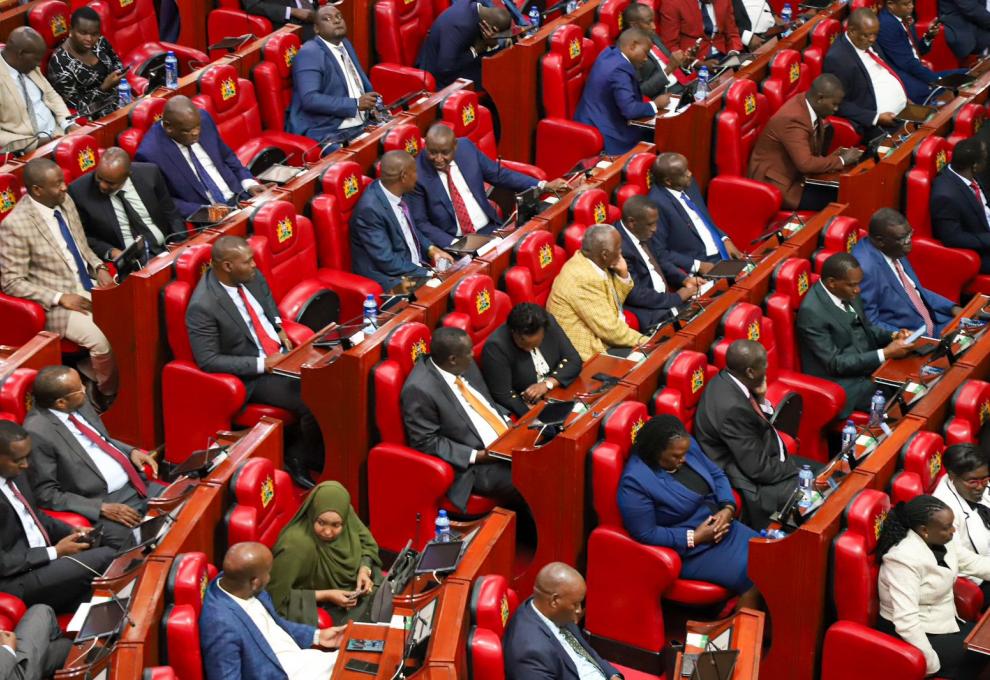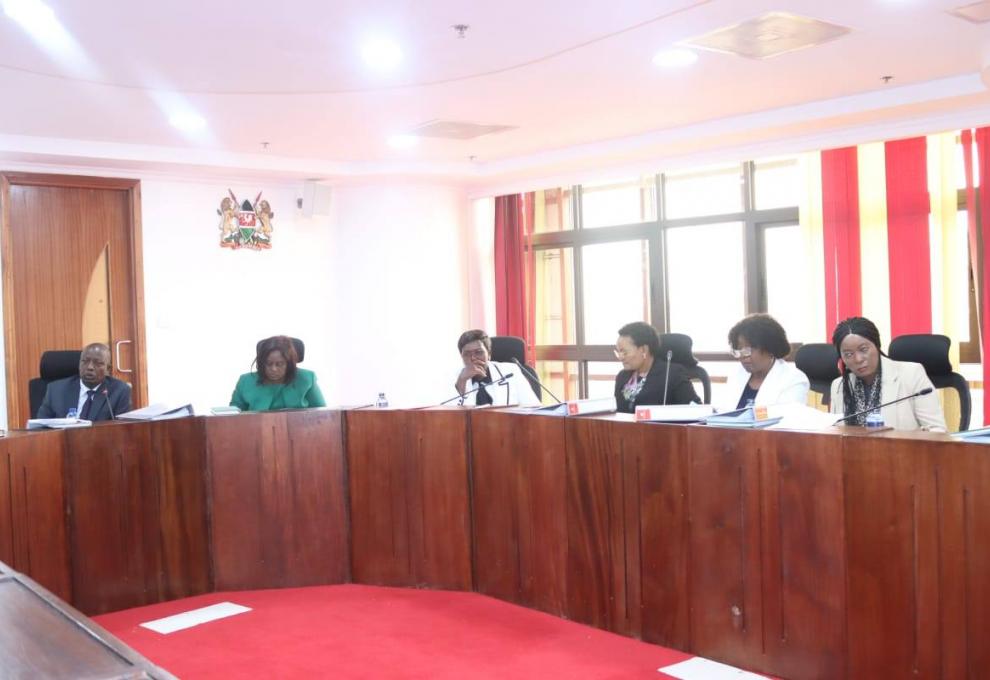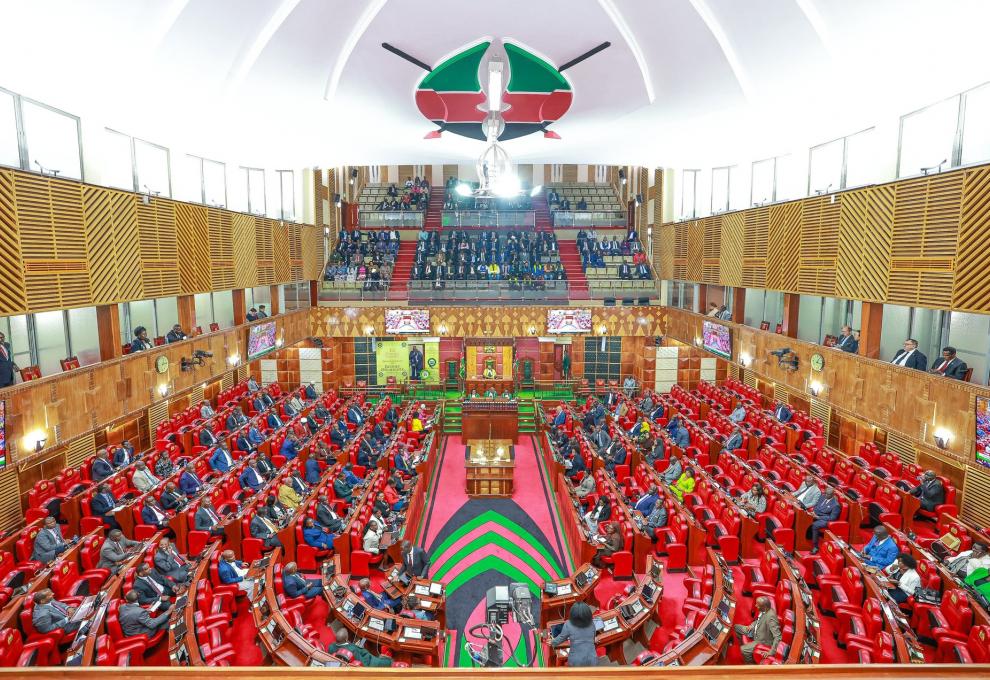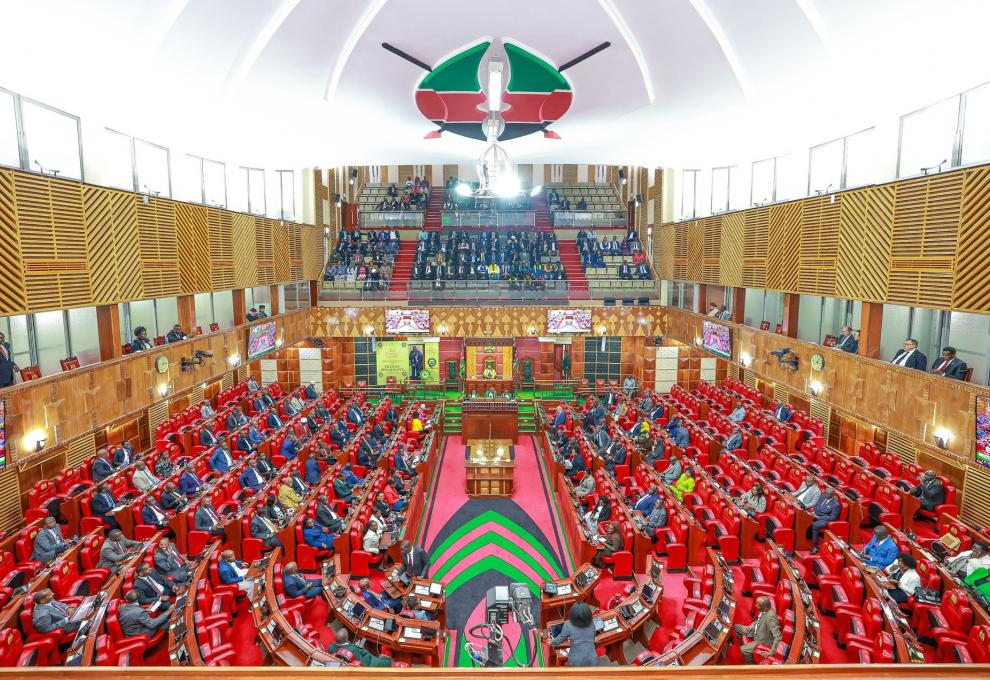𝗡𝗔𝗧𝗜𝗢𝗡𝗔𝗟 𝗔𝗦𝗦𝗘𝗠𝗕𝗟𝗬 𝗖𝗢𝗠𝗠𝗘𝗡𝗖𝗘𝗦 𝗖𝗢𝗡𝗦𝗜𝗗𝗘𝗥𝗔𝗧𝗜𝗢𝗡 𝗢𝗙 𝗙𝗜𝗡𝗔𝗡𝗖𝗘 𝗕𝗜𝗟𝗟, 𝟮𝟬𝟮𝟰
The Consideration of the Finance Bill, 2024 has commenced with the First Reading of the Bill on Monday, May 13, 2024.
The House convened for a Special Sitting whose main objective was to receive the Report of the Special Select Committee on the removal from office of Hon. Mithika Linturi, the Cabinet Secretary for Agriculture and Livestock Development.
Before the Bill was introduced in the House, the Chairperson of the Departmental Committee on Finance and National Planning, the Hon. Kimani Kuria (Molo), sought the agreement of the House to reduce the publication period for the Bill, from seven to four days. Hon. Kuria noted that the move was geared towards allowing the Committee time to conduct public participation.
“The import of the reduction of the publication period is to create room for public participation so we can have a robust conversation on this Bill”, he said.
While seconding the Procedural Motion, Funyula MP, (Dr.) Wilberforce Oundo urged the Committee to take into consideration, the views of the public collated during the exercise.
The Hon. Kuria-led Committee is now expected to conduct a public engagement exercise, and thereafter present its report to the House, paving the way for the debate of the proposed legislation in the Second Reading.
The Finance Bill, 2024 (National Assembly Bills No. 30 of 2024) was published on 9th May, 2024. It was submitted to the National Assembly by the Cabinet Secretary for the National Treasury and Economic Planning.
It formulates proposals relating to revenue raising measures including liability to, and collection of taxes.
Key among the legislations the proposed law seeks to amend include: the Income Tax Act (Cap.470), the Value Added Tax Act (Cap.476), the Excise Duty Act (Cap. 472), The Tax Procedures Act (Cap. 469B) and the Miscellaneous Fees and Levies Act (Cap.469C).
The Bill also seeks to amend other pieces of legislation relating to fees, levies and management of public funds. These are: the Affordable Housing Act (No.4 of 2024), the Industrial Training Act (Cap. 237), the Data Protection Act (Cap 411C), the Public Finance Management Act (Cap.412), and the Kenya Revenue Authority Act (Cap.469).
With regards to the amendment of the Income Tax Bill, the proposed legislation intends to amend section 15 of the Act to include the following as deductible expenses: contributions made to the Social Health Insurance Fund (SHIF); deductions made by an employer from employees for the affordable housing levy; and a contribution to a post-retirement medical fund subject to a limit of ten thousand shillings per month.
In a move set to onboard electronic tax administration to address the challenges of tax avoidance by entities, the Bill proposes the amendment of section 59A of the Act to provide for the requirement to integrate the electronic tax system to the data management and reporting system, for the purposes of submission of electronic documents.
In a bid to offer clarity on timelines for lodging tax returns, the Bill has proposed that weekends and public holidays be excluded when determining statutory timelines under tax laws.
Further, to offer reprieve to business entities, the Bill seeks to change the manner in which time is computed under tax laws for purposes of among others, lodging of tax returns, payment of taxes and submission of documents by excluding weekends and public holidays.
This means that under tax laws, the computation of time will be based on business days instead of calendar days.
Another significant provision in the Bill is the proposal to amend the Public Finance Management Act to make provision for implementation of accrual accounting in Government.
The Accrual basis of accounting is an accounting method that requires revenues and expenditures to be recorded in the financial statements when they are earned and incurred respectively, while cash basis of accounting is an accounting method that requires transactions to be recorded only when cash flow has occurred.



